Washington, D.C., Oct. 16 – When politicians and candidates for public office think about reaching out to minority communities, it is important that they remember the one-in-five Americans living with some form of disability. Voters with disabilities are a massive pool of potential voters who have often been ignored in past elections. However, those voters are now more engaged and active than ever. According to a recent study by Rutgers University, up to 38.3 million eligible voters are people with disabilities. This represents a massive increase in participation by voters with disabilities compared to past elections.
RespectAbility has conducted polling research of its own and found that three quarters of likely voters either have a disability themselves or have a close friend or family member with a disability. With such a large share of the electorate having a personal interest in disability issues, politicians must pay attention. As a nonpartisan national nonprofit organization fighting stigmas and advancing opportunities so people with disabilities can participate fully in all aspects of community, RespectAbility has invited all candidates in the Presidential as well as key Senate and Governor races on both sides of the aisle to submit their answers to a 2020 Disability Voter Candidate Questionnaire.
Question 4 of the Questionnaire was: What will you do to promote policies and practices designed to support full community engagement, access and inclusion of people with disabilities?
Below, read the answers from the candidates who responded. These responses are listed alphabetically by state:
Democratic Presidential Candidate and Former Vice President Joe Biden:
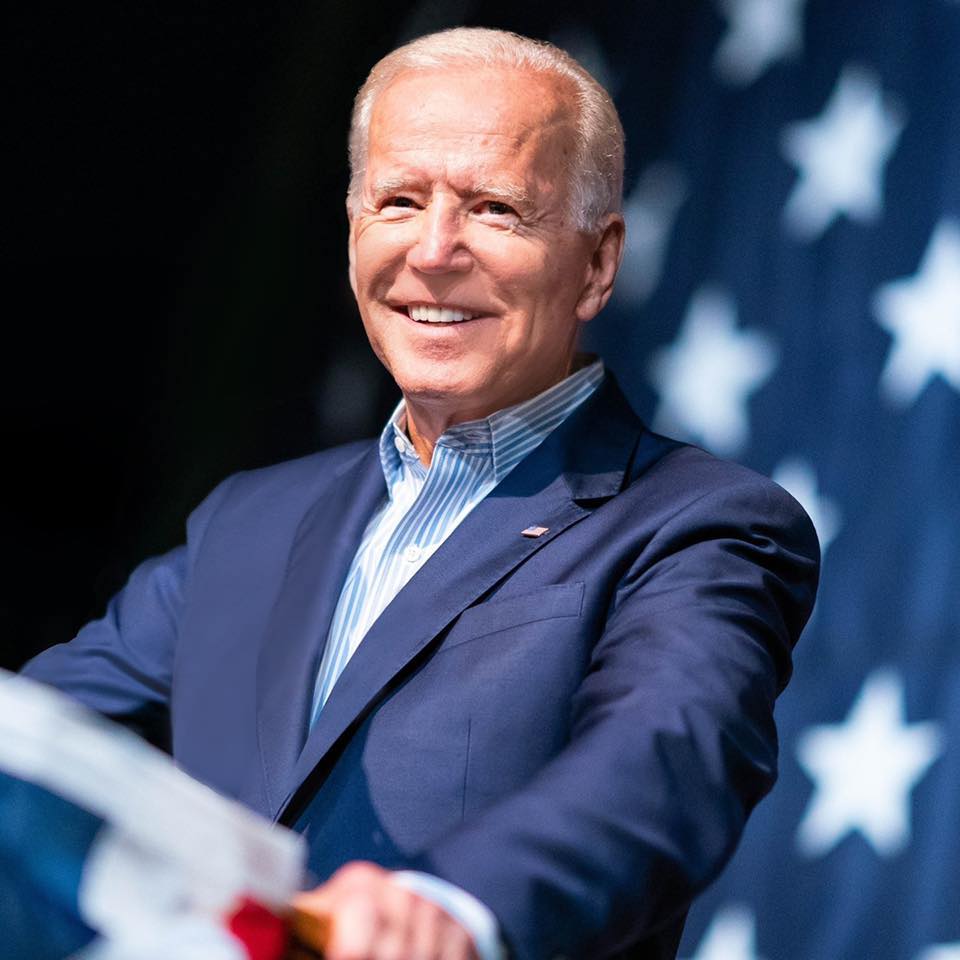
My comprehensive Plan for Full Participation and Equality for People with Disabilities seeks to do just that through a broad sweep of laws, policies, and actions designed to uplift dignity and opportunity. The plan creates a senior White House position dedicated to asserting the interests of Americans with disabilities in every area of policy development — ensuring that disability rights are embedded in everything we pursue. I will also aggressively enforce existing civil rights laws for people with disabilities as well as appoint leaders in the Departments of Justice, Education, Health and Human Services, Labor, and Housing and Urban Development, and the Equal Employment Opportunity Commission, and across the rest of the federal government, who share my commitment to tough and effective enforcement of all civil rights laws.
I will make bold investments in home and community care through Medicaid to help states clear the backlog of 800,000 people who need support, but can’t get it. I will give a major, long-overdue raise to the direct care workforce. And I will guarantee access to high quality, affordable health care — including mental health care — for every American.
Read Biden’s full questionnaire response here
Incumbent Democratic Senator Doug Jones of Alabama:
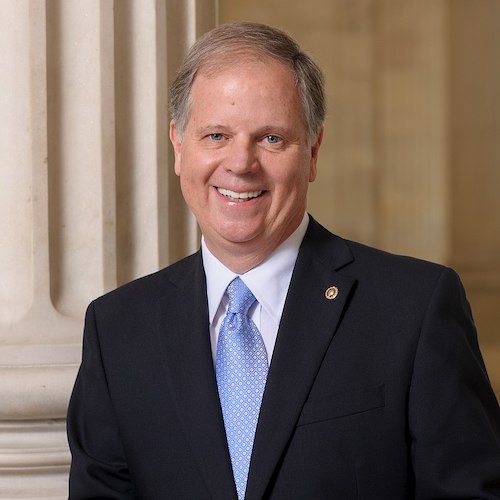
I believe social and philanthropic organizations should be reflective of the country as a whole – particularly with regards to organizations with a focus on disabilities, and I will continue to lead efforts like my bill, the Classrooms Reflecting Communities Act, that will provide better access, support and inclusion for people with disabilities.
Read Jones’s full questionnaire response here
Democratic Senate candidate and former Colorado Governor John Hickenlooper:

Hickenlooper has worked to improve the lives of people with disabilities in Colorado. As Governor, Hickenlooper signed legislation to provide disability training to employers, remove and replace derogatory terms in Colorado law, and added LGBTQ people and people with disabilities to the state’s existing hate-crime laws. In the Senate, Hickenlooper will expand on his work in Colorado at the national level and will work with RespectAbility and other advocates to implement policies that promote full community engagement, access and inclusion of people with disabilities.
Read Hickenlooper’s full questionnaire response here
Incumbent Democratic Governor John Carney of Delaware:

Yes. I believe that a true measure of the commitment of government to the people it serves is how well it addresses the needs of those who are living with disabilities. Throughout my career in public service, I have been a strong advocate for improving the services and support offered to Delawareans with disabilities. I created the Opportunity Funding program, the state’s first weighted funding program, to provide additional support for low-income and underserved students. Through the legislative and budget process, I also supported the McNesby Act, prioritizing additional funding for providers that support people with disabilities and their families. We have more work to do on this issue, but we have made progress.
Read Carney’s full questionnaire response here
Incumbent Republican Governor Eric Holcomb of Indiana:
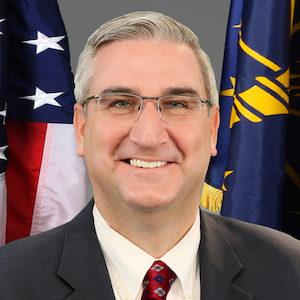
Editorial Note: Gov. Holcomb answered RespectAbility’s questionnaire with a letter focused on his Administration’s past disability efforts. He did not specifically answer Question 4.
Read Holcomb’s full questionnaire response here
Democratic gubernatorial candidate Dr. Woody Myers of Indiana:
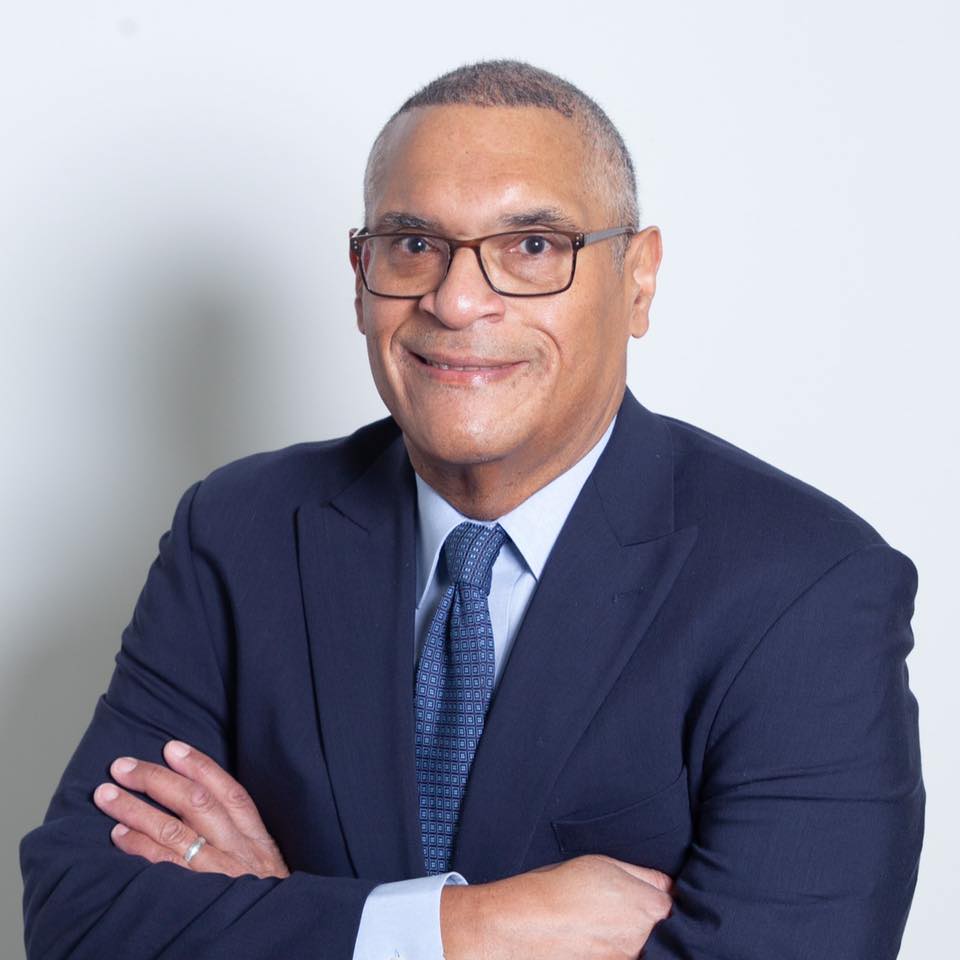
We are committed to empowering Hoosiers with disabilities to have the skills, support, and access they need to fully participate in their communities as active, valued members. Our administration will prioritize efforts to ensure affordable and accessible housing, reliable transportation, and increased jobs and economic security for those who have been underrepresented for far too long. We will work to improve the state’s medical transport system, support local governments in repairing and building sidewalks to make our communities more accessible, invest in affordable housing development that allows seniors and individuals with disabilities to live in any community they choose and increase job training and placement for those who are willing and able to work, ensuring necessary accommodations are readily available. We will fight to remedy disparities in healthcare and improve wellness in the disability community including by using incentives in Medicaid to address acute care as well as preventative care and create good care management options for all people with disabilities. We’ll ensure state buildings meet accessibility standards and provide alternative communication as requested, in the format preferred, such as ASL interpreters, audio loops, real-time captioning, Braille, and electronic format. Additionally, we’ll implement implicit bias training for state employees so that they better understand the issues facing Hoosiers with disabilities.
Ready Myers’s full questionnaire response here
Democratic Senate candidate Theresa Greenfield of Iowa:
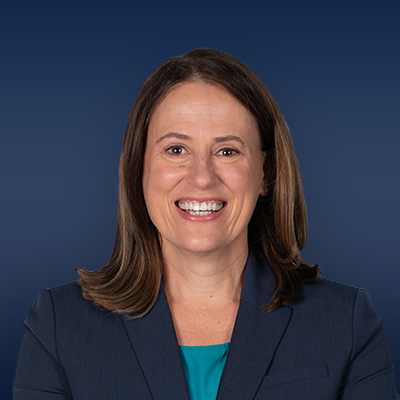
As a U.S. Senator, I will speak out and attend community events designed to engage on these issues and promote access, inclusion and more opportunities for people with disabilities.
Read Greenfield’s full questionnaire response here
Incumbent Republican Senator Susan Collins of Maine:

Editorial Note: Sen. Collins answered RespectAbility’s questionnaire with a letter focused on her legislative accomplishments and career. She did not specifically address Question 4 on our questionnaire.
Read Collins’s full questionnaire response here
Democratic Senate candidate and Speaker of the Maine House of Representatives Sara Gideon:

As Speaker and on my campaign, I’ve worked to lift up the voices of Mainers with disabilities and their community advocates to ensure they are heard and that their concerns are addressed. In the Senate, I will continue to seek the perspective and experience of the disability community as we work to create more inclusive policy.
Read Gideon’s full questionnaire response here
Democratic Senate candidate and current Montana Governor Steve Bullock:

As Senator, I will support efforts to ensure that federal agencies explicitly include people with disabilities in their diversity and inclusion initiatives, including their hiring practices, and encourage the publication and promotion of best practices for ensuring inclusion with employers, organizations, and programs across the country.
Read Bullock’s full questionnaire response here
Incumbent Republican Senator Steve Daines of Montana:
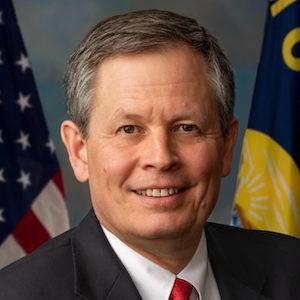
All Montanans and Americans should be treated equally and discrimination of any kind is unacceptable in our society. That’s why I’ve introduced legislation like the Disability Integration Act, which prohibits government entities and insurance providers from denying service to those with disabilities. We must embrace those with disabilities, because there is dignity in all human life. I will continue fighting to ensure all Americans and Montanans, including those with disabilities, have the opportunity to play an active role in our societies and ensure they are welcomed into our communities with open arms.
Read Daines’s full questionnaire response here
Democratic candidate for Governor and current Montana Lieutenant Governor Mike Cooney:
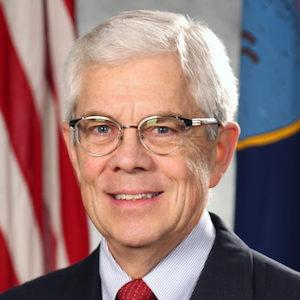
When I am elected, I will establish a Disability Rights Council that will meet periodically and provide me with recommendations and feedback on policy and programs designed to meet the needs of Montanans with disabilities. This group will consist of stakeholders, agency representatives, and leaders in the disability community from across the state, and will be charged with finding ways I can, as governor, enact changes that make meaningful improvements in the lives of disabled Montanans.
Read Cooney’s full questionnaire response here
Libertarian Senate candidate Bob Walsh of New Mexico:
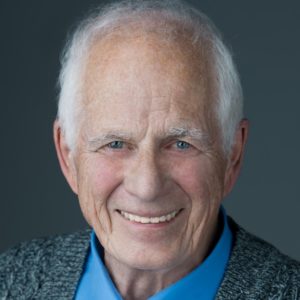
If elected, I will seek advice from a organization that advocates for people with disabilities.
Read Walsh’s full questionnaire response here
Democratic Senate candidate Cal Cunningham of North Carolina:
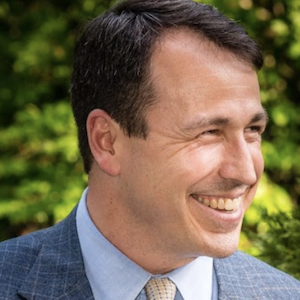
Exclusion and barriers to opportunity for individuals with disabilities hold our country back from reaching its full potential. It’s critical that our businesses and organizations as well as federal, state and local policies are as inclusive as possible. We must push to do better, and proactively and regularly review policies and practices that may be unintentionally exclusionary or harmful and then work to improve them. That starts by engaging with the disability community and including individuals with disabilities in the decision-making process. That’s what I plan to do as Senator.
Read Cunningham’s full questionnaire response here
Incumbent Republican Senator Thom Tillis of North Carolina:
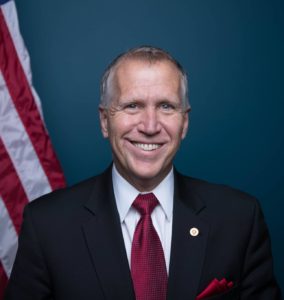
One thing I have learned from speaking with leaders in the business and non-profit sectors is that most organizations and individuals do want to be inclusive and welcome those from all backgrounds and ability levels. The biggest barrier is frequently one of knowledge and know-how, and this often stems from a lack of exposure and education. I admit that when I first came to the U.S. Senate, my social media posts did not include closed captioning or alt text to describe images. After a constituent alerted me that not all North Carolinians were able to easily view the resources and updates we were publishing, I worked with my staff to make this content more accessible. It’s hard to correct our shortcomings if we are not aware of them. And while my office has made strides to date, I know there is always room for improvement, and we will only know how we can move forward when we hear directly from the affected community.
More broadly, I have successfully fought to protect the AbilityOne program, which is the largest source of employment for people living with disabilities, and I support policies like the ABLE to Work Act that empower individuals living with disabilities to seek and maintain employment without losing access to medical and other benefits that they need. For too long, federal policies have actually discouraged many Americans from working. I will continue to support policies that remove barriers to employment and encourage a more inclusive workplace and society.
Read Tillis’s full questionnaire response here
Incumbent Democratic Governor Roy Cooper of North Carolina:

I proclaimed July 25 as Americans with Disabilities Day in North Carolina to honor the more than 1.3 million North Carolinians who have a disability and honor the anniversary of the Americans with Disabilities Act.
The North Carolina Council on Developmental Disabilities launched Inroads to Employment, a program that works to help people living with intellectual and other developmental disabilities find employment. To date, the program has established mentorships and apprenticeships across the state. Inroads to Employment fills a gap for many young people living with disabilities who can have trouble developing employment skills through traditional means.
The Linking Inclusion in Information Technology (LiNC-IT) internship program is another example of promoting inclusion of people with disabilities.
Many of the issues people face with unconscious bias in hiring affect people with disabilities. We will work with Human Resources on training and awareness.
Read Cooper’s full questionnaire response here
Democratic congressional candidate Moe Davis of North Carolina:
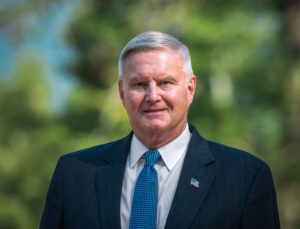
I will support all current and future policies that make life less stressful for people with disabilities. I’ve actually been a beneficiary of the Americans with Disabilities Act. When I worked for the Department of Labor as an administrative law judge, I was provided a reasonable accommodation that included a sit-stand desk and an ergonomically fitted chair.
The current administration is requiring folks on SSDI get more frequent reviews. A tactic that will cost about the same as it will save but will place a very heavy and unnecessary burden on the disabled. It will also cause many to lose benefits. We are the wealthiest country in the world and every couple of years the disabled have to worry about losing the meager benefits they receive. Right now, the president has cut the payroll tax which is the tax that pays for SSI, SSDI and Medicare. I will fight hard against legislation that puts the disabled in the crosshairs of politics. I do believe disabled persons need to be at the table of all decisions made concerning legislation that would impact their lives. We need to challenge the stigma associated with disabilities. Government contracts can promote those with disabilities, which helps to challenge stereotypes.
Read Davis’s full questionnaire response here
Democratic Lieutenant Governor and candidate for Vermont Governor David Zuckerman:

Rectifying unintentional exclusions like the ones mentioned above do not happen organically. It takes hard work and it takes statewide action to both raise awareness about these practices and force – either through a carrot or a stick – organizations to include people with disabilities. That is why I support providing incentives and support to Vermont businesses to hire people with disabilities. Knowing that those incentives are available will encourage greater awareness and rectification of underlying biases that exclude people with disabilities. I also support clear standards about including individuals with disabilities for government hiring practices and requirements for companies who receive Vermont government contracts.
Read Zuckerman’s full questionnaire response here
Democratic Governor candidate and Kanawha County commissioner Ben Salango of West Virginia:

I will make health care affordable and accessible and will protect the 800,000 West Virginians with pre-existing conditions. Ben will fight for a cap on monthly insulin co-pays and make prescription drugs affordable.
I fully supported the effort to eliminate the Intellectual/ Developmental Disabilities (IDD) waiver waitlist using surplus Medicaid funds. It’s too bad Jim Justice had to be dragged, kicking and screaming to do it.
I will utilize tele-health technology to give rural communities or those with disabilities better access to health care.
I will strengthen healthcare protections to help consumers who are wrongly denied health insurance coverage to make sure that insurance companies aren’t taking advantage of Mountain State families.
Read Salango’s full questionnaire response here
RespectAbility is a nonprofit, nonpartisan organization that fights stigmas and advances opportunities so people with disabilities can fully participate in all aspects of their communities. RespectAbility does not rate or endorse candidates. View more coverage of 2020 candidates.
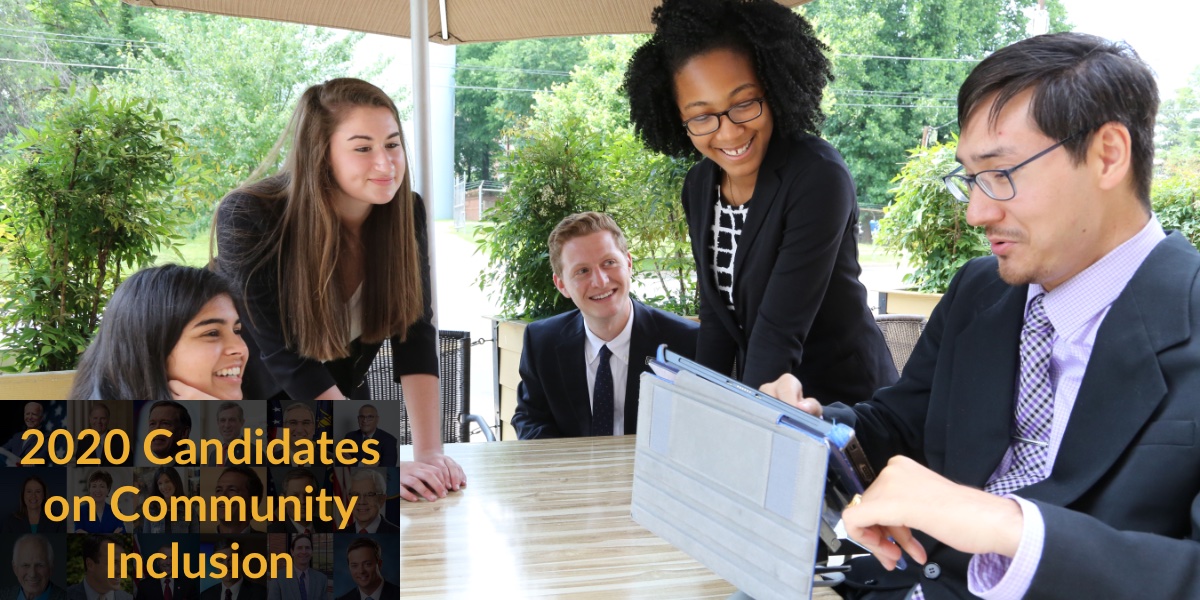
Be First to Comment